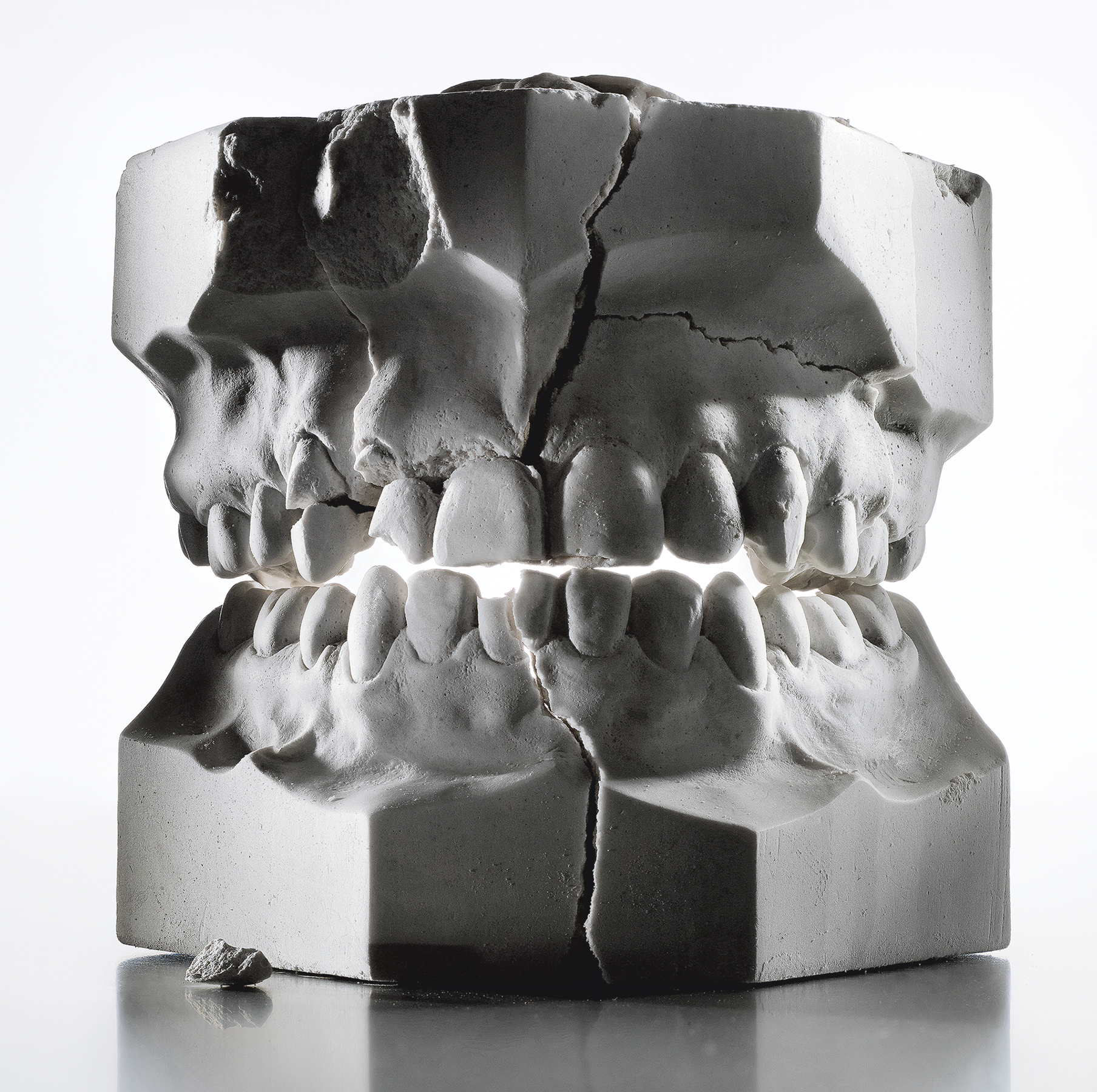Backaches, sleepless nights, upset stomach. Just reading about the physical manifestations of stress can trigger a headache. Unchecked, stress can contribute to serious health conditions including high blood pressure, diabetes, and heart disease.
There’s another, less obvious part of our body both affected by stress and a sign of it: our pearly whites.
“Sometimes people end up with issues that they didn’t even know were dental, and they didn’t even know they were stressed,” says Danine Fresch Gray, a general dentist who owns Clarendon Dental Arts.
Clenching or grinding the teeth, a common dental problem that can be related to stress, can cause headaches, chipped or flattened teeth, and tight jaw muscles. Improper bites and the breakdown of the temporomandibular joint connecting the skull to the jawbone may contribute to these dental woes, says Richard Rogers, a dentist in Frederick. Stress exacerbates grinding in those situations.
Rogers recently saw a college student home for break who was experiencing jaw pain and clenching during his exams. “The analogy might be gas on the fire,” Rogers says. “There’s already a fire burning and they are doing some damage, but it’s not that dramatic. Then they go through a period of stress, and they start grinding harder and they wake up with a headache and say that it’s stress causing it.”
Certain drugs taken for depression and anxiety, including Prozac and Zoloft, also may lead to jaw-clenching and teeth-grinding. “It’s just a side effect of the drug,” says Fresch Gray. “That’s a big one—lots of people don’t know that.”
Teeth-grinding and clenched jaws aren’t the only oral-health manifestations of stress. A 2007 review of scientific studies found that there’s a relationship between stress and periodontal disease, which includes gum and tissue infections such as gingivitis. Recent research from Canada also found that participants with more perceived stress reported poorer oral health and greater oral pain compared with participants who had less stress. Alex Vasiliou, lead author of the study, explained in an e-mail that cortisol—a hormone involved in the body’s stress response—impairs the immune system, making a person more susceptible to gum disease.
Rogers says that someone stressed out or sick might be more apt to disregard proper oral hygiene, leading to inflamed gums or tooth decay: “They’ll just stop caring about things, and oral health falls into that.”
Fresch Gray has seen the number of patients with stress-related symptoms increase in the past year. Although it’s tempting to blame Twitter rants and turbulent politics, other factors no doubt contributed.
According to a recent “Stress in America” report from the American Psychological Association, Americans on average reported more physical symptoms of stress in 2017 compared with 2016, including anxiety, anger, and fatigue. The most common sources were the “future of our nation,” money, and work. It was the first significant increase in stress levels found by the APA since the inaugural survey in 2007.
While there are no Washington-specific numbers, a national survey in January 2017 found that 62 percent of urbanites were stressed by the election of Donald Trump, compared with 45 percent and 33 percent of people in suburban and rural areas, respectively.
Because of the connections between psychological stress and physical and oral health, a dentist must consider the whole person when a patient presents a stress-related dental issue. “One of the sayings is you never see a tooth walk through the door—it always has a human attached,” says Rogers. Teeth-grinding, for example, can be a sign of a sleep disorder. When someone has sleep apnea, the body’s effort to clear the airway may include grinding the teeth. “We monitor [patients’ sleep] and we say, ‘Here’s where you stopped breathing and gasped for air, and then you grind your teeth.’ ”
To treat a problem, Fresch Gray may look beyond dental fixes at such things as a patient’s diet and whether the person has diabetes, which can increase the risk of gum disease. “It’s not that you’re always stressed out,” she says. “It could be that you’re taking some drugs that you don’t know are making you clench, that you have diabetes or an autoimmune disease causing stress, or there are some extraneous external things like circadian rhythms and PTSD—all these things cause stress on your body that eventually shows in your mouth.”
She recalls one patient who recently came into her office. A veteran who served in Afghanistan, the man was having trouble sleeping and was clenching his jaw. “I asked about PTSD, and he had it,” Fresch Gray says. “That stress is daily in his life, and we kind of got to the root of it, but I’m not necessarily the person to help with that.” She recommended he participate in a sleep study to diagnose any sleep disorders.
“I could have gotten him a mouth guard,” says Fresch Gray, “but that’s not going to solve the problem.”
This article appears in the March 2018 issue of Washingtonian.



















